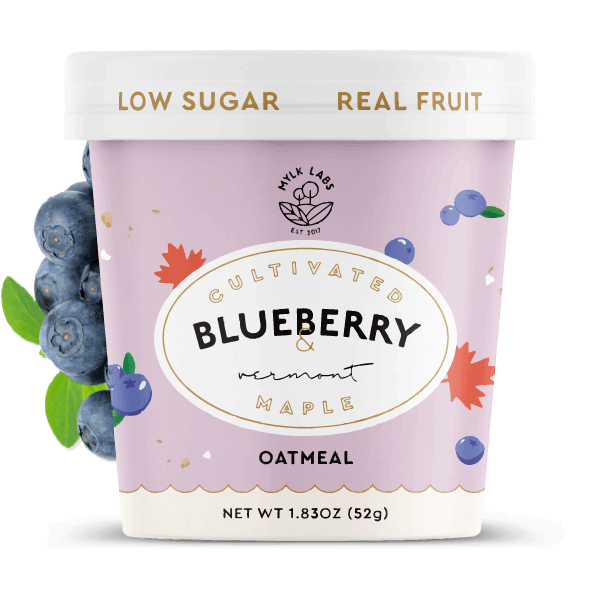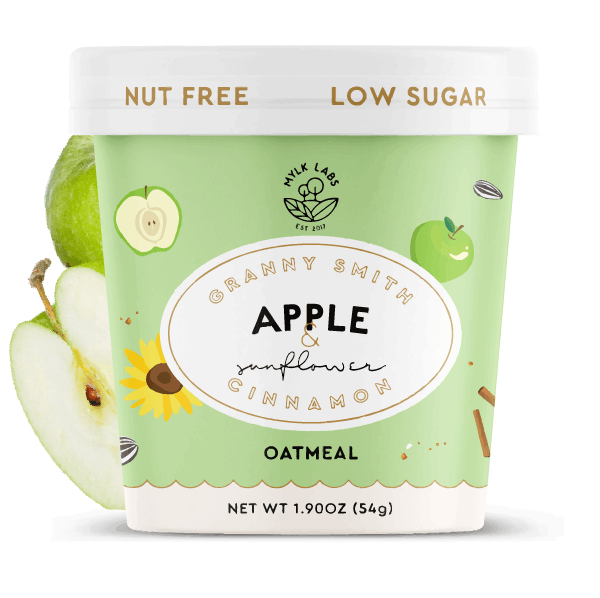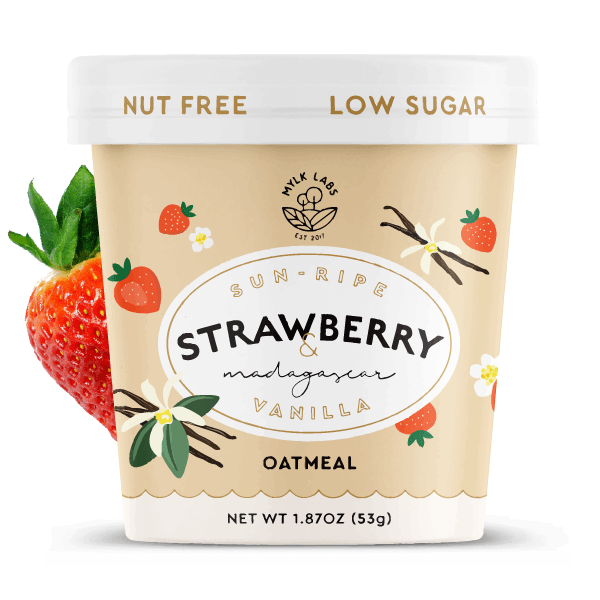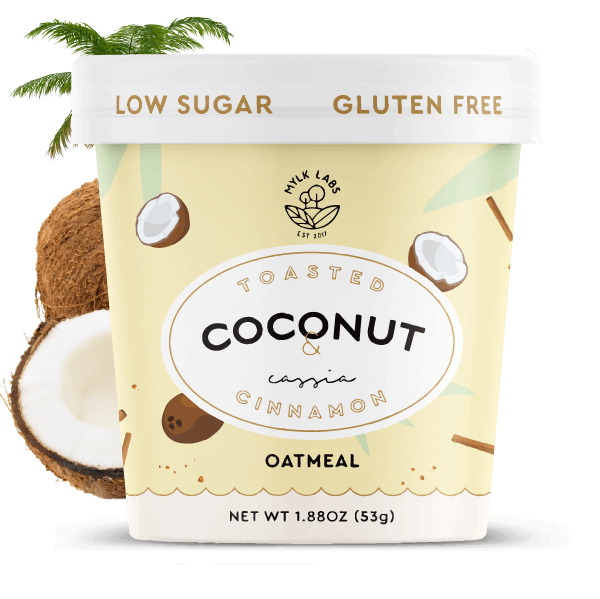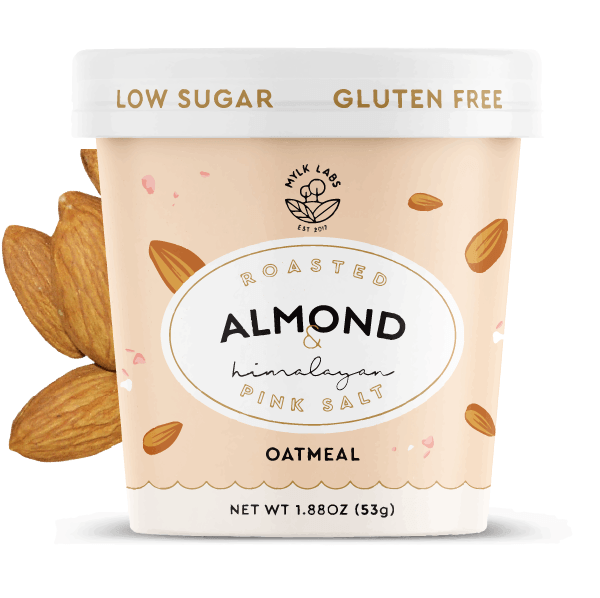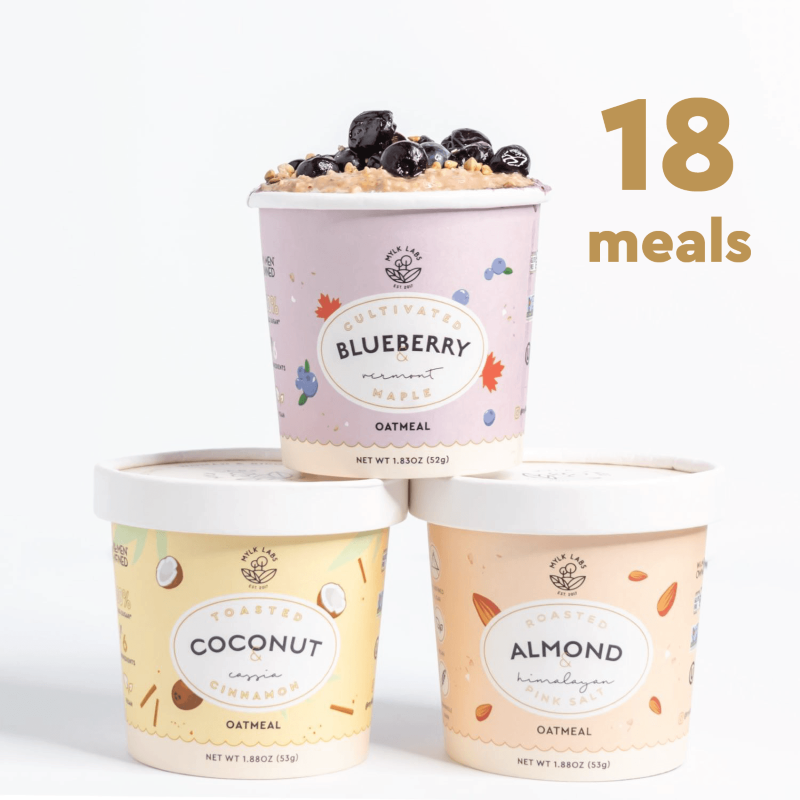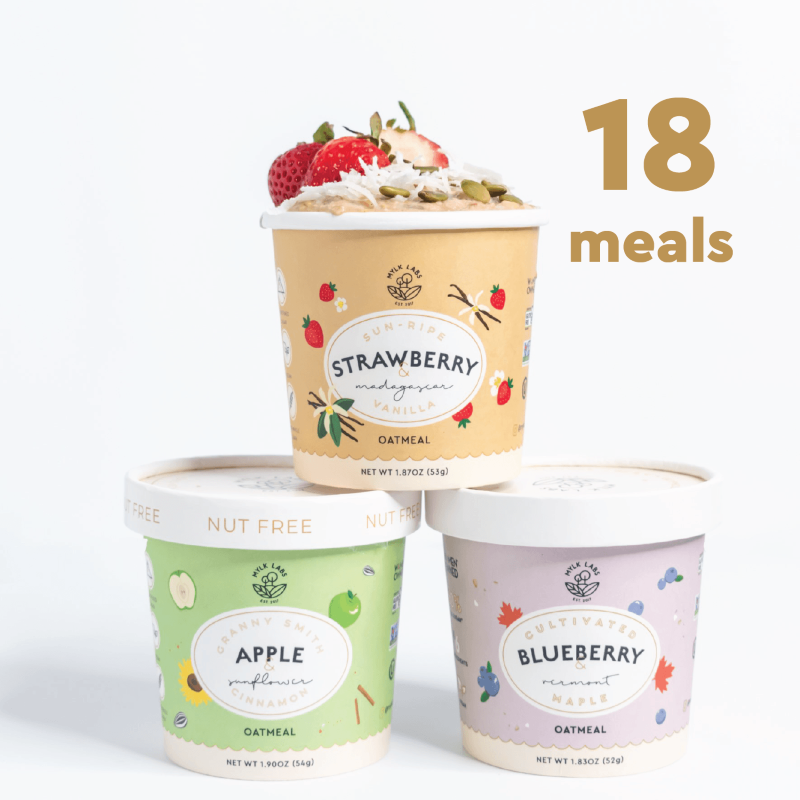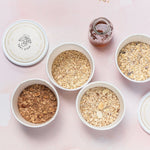Our brains run on it. Our taste buds tingle at the sight of it. There’s no getting around it — humans love sugar.
We love it so much that we’ve ingrained it in every aspect of our diet. Juicy fruits are packed with healthy amounts of sweetness while most sodas tip the scales. Sugar comes in many forms, the most popular being corn syrup and cane sugar.
But maybe you didn’t know there was an alternative sugar to bake in your next batch of cookies, one that’s likely a bit healthier — coconut sugar.
This natural sweetener is quickly rising in popularity among healthy food brands and for good reason. It’s an ingredient that we can trust and infuse in every cup of our instant oatmeal.
But what exactly is coconut sugar? And why do we choose it when many other oatmeal brands opt for cane sugar or corn syrup?
Settle in because you’re in for a quick history lesson and love letter to our favorite natural sweetener, coconut sugar.
How is Coconut Sugar Made?
Also called coconut palm sugar, this delicious brown sweetener is created by harvesting the sap of the coconut palm tree, not from the coconuts themselves. This sap circulates through the coconut palm tree just like maple syrup circulates through a maple tree.
In order to make coconut sugar, harvesters use a simple, three-step process:
- First, cut into the flower’s stem and collect the liquid sap.
- Then, mix the sap with water and boil the mixture to create a syrup.
- After the syrup dries and crystallizes, break the dried mixture into tiny granules — these will look like raw sugar or even brown sugar. Voila, you’ve got coconut sugar!
Not only is the harvesting process pretty simple, but it’s also more sustainable than other sweetener options. Cane sugar is one of the world’s thirstiest crops, using almost nine gallons of water just to make a single teaspoon.
High fructose corn syrup doesn’t fare much better because it’s mostly grown without sustainable crop rotation, meaning harvesters maximize yields at the expense of healthy soil.
To paint a better picture of what this yield might look like, they’ve been feeding the average American over 42 pounds of corn syrup a year!! This isn’t great news considering eating fructose corn syrup increases appetite and can contribute to diabetes and inflammation.
Meanwhile, coconut sugar comes from the sap of long-growth coconut palm trees. To get the most sap (and highest profits), harvesters have to keep their plants happy and healthy. In other words, a good environment equals more coconut sugar!

Is Coconut Sugar Healthy?
It’s impossible to give blanket answers to questions like, “Is coconut sugar good for you?” After all, the health benefits of any food depend heavily on the person eating it. But, we can compare coconut sugar to other sugars like cane and corn syrup.
Unlike cane sugar and corn syrup, coconut sugar does retain some nutrients found in the original plant like iron, zinc, calcium, and potassium. It even has small amounts of antioxidants like polyphenols and flavonoids, which may help reduce inflammation and improve heart health.
Don’t go eating cupfuls of coconut sugar, though. After all, coconut sugar is still sugar. Too much added sugar in your diet could contribute to diabetes or weight gain.
But if you’re choosing between cane or corn, don’t forget to take a close look at coconut. Unlike those two common sweeteners, coconut sugar contains small amounts of inulin, a soluble fiber that might reduce the likelihood of a blood sugar spike after eating.
This gives coconut sugar a low glycemic index compared to other popular sweeteners — about half that of refined cane sugar. It takes longer for the body to break down, process, and pump into your bloodstream, giving you less risk of a dreaded sugar crash.
So, coconut sugar is probably a better pick for you if you like a sprinkling of sweetness in your morning oatmeal but want a steadier stream of energy throughout the day.

Why Do We Use Coconut Sugar?
We didn’t choose coconut sugar just for its health benefits. We also love that it infuses nutty, natural caramel flavors into a hot bowl of morning oatmeal.
While adding a scrumptious bite of sweetness, it keeps our blood sugar more stable than corn syrup or cane sugar. In creating our oatmeal cups, we wanted to create a breakfast option that we’d look forward to every morning and feel good about long after we’re done.
Many other instant oatmeal brands pack in up to fifteen grams of cane or brown sugar in a single serving, not to mention the high sodium content. They’re packed with so much salt and sugar that it cancels out the health benefits that come with a spoonful of delicious, natural oats.
We took a different approach.
Designing our oatmeal cups with a nutrition-first mindset, we made sure that Mylk Labs oatmeal cups have less salt and added sugar than every other sweetened oatmeal brand out there.
After all, eating oatmeal should be simple, healthy, and delicious. The coconut sugar in our oatmeal cups adds a tasteful sprinkling of sweetness to the start of every action-packed day.

Try Coconut Sugar in Healthy, Instant Oatmeal
Our founder, Grace Cheng, loves oatmeal. She eats it every day. Staying true to her values, she strived to create a healthy instant oatmeal cup packed with delicious, natural flavor, mirroring the homemade oatmeal she’s eaten daily for nearly a decade.
With those goals in mind, one sweetener option stood out from the pack — coconut sugar. It's part of a family of ingredients along with Himalayan pink salt, sunflower seeds, gluten-free oats, and others that embody our commitment to simple, healthy eating.
Taste for yourself how coconut sugar brings out the best in our oatmeal cups, the perfect option for squeezing a nutritious breakfast into your busy life.










